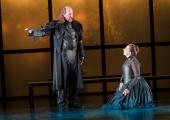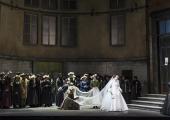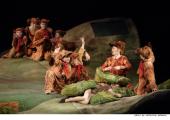Romeo and Juliet, Sherman Cymru, Cardiff
Wales's newest artistic director Rachel O'Riordan opens with an energetic blast of the Bard
When unveiling her first season at Sherman Cymru earlier this year, new artistic director Rachel O’Riordan gave voice to two ambitions: to generate new writing within Wales, and produce classic texts which specifically resonate with the audience. What better way to begin than with Shakespeare’s famous tale of star-crossed lovers?








